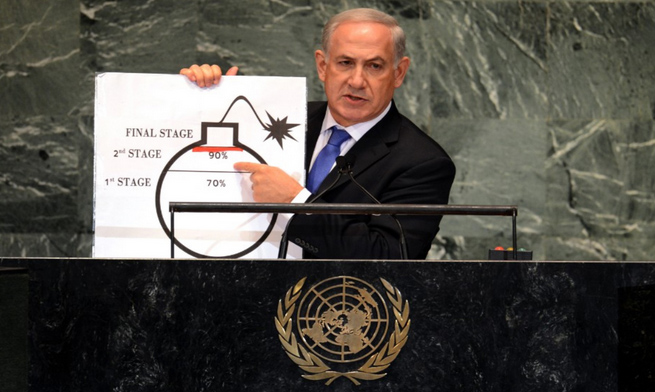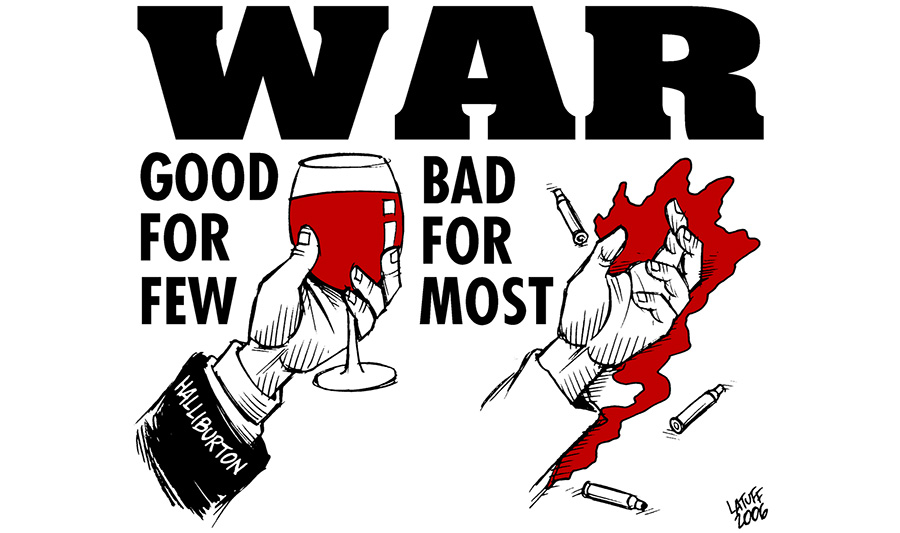Russia’s Provocation – A Fabrication? (Part 2)
After the collapse and restructuring of the Soviet Union in 1991, the neoconservative core in Washington initiated an agenda. It is called the Wolfowitz doctrine, named after the zionist and neoconservative Paul Wolfowitz. Its first objective is to prevent the re-emergence of a new rival that could challenge U.S. goal of hegemony. Most of Washington’s geopolitical affairs have, from observation, been in accordance with the Wolfowitz doctrine.
As several critics have pointed out, the Israel lobby is heavily involved in influencing Washington’s foreign policy in the Middle East. Israel’s PM, Benjamin Netanyahu, keeps bringing up his visualization of Iran’s «almost finalized nuclear bomb», just as he did about Iraq in 2002. The fact that he was completely wrong then seems to be forgotten. Through congress meetings, he reminds the U.S. about their common G-d given exceptionalism. (Nevermind that there are fundamental inconsistencies between Judaism, Christianity and political Zionism).

Benjamin Netanyahu says the same about Iran today as he did about Iraq in 2002.
Insiders like Wesley Clark has stated that there was a coup in US foreign policy by a small group of hard-nosed people that wanted to destabilize the Midle East long before 9/11. These people have harmed the renome of US and allies, even if the people as a whole shouldn’t be confused with state leaders or profit hunters. Still, when wars break out such distinctions aren’t taken into consideration.
The diplomatic work that was done to end the Cold War and the weapon race between the US and the Soviet Union has been detoriated by the Clinton, Bush and Obama administrations. Clinton broke the US promise not to expand NATO eastward. Bush Jr pulled US out of the anti-missile treaty and did at also show the world how easily new wars could be initiated. Under Obama numerous ABM bases have been eastablished around the borders of Russia and China.
Russian-american critic Dmitry Orlov has studied the parallells between the collaps of the Soviet Union and the current state of the US. In relation to Washington’s wars he points out that problems are made worse while one pretends to be solving them. He proposes that the cause of this contradictory behavior is that problems create profit – for a few. Norwegian Johan Galtung, also called the father of Peace Studies, has pointed out that Washington’s wars cost so much that they keep driving the US into continous budget deficit

Is this really what NATO allies want to support? Should an unstable Western debt economy regain itself through warfare – or through a healthy production economy, technology and cooperation between nations?
Washington has been able to persuade its allies through the words: «Either you are with us or you are with the enemy». Critique of Israel can be neutralized throug their words: «You are anti-semites». One should then be made aware that many critics of Washington’s foreign policy are americans and many critics of Israel’s policy are jews.
From the perspetive of both Russia and China, Washington and Israel can be viewed as offensive – or paranoid. Such a behaviour must be met with diplomacy and downplay till the situation is calmed down. It is such an approach Putin has attempted so far, and Russia has just recently [2016] positioned themselves militarily towards the moves of Washington. Johan Galtung proposes that the next US president [now Trump] chooses a historical noteworthy direction: «A USA for peace. Cooperating, not competing, with both China and Russia.»
If, on the other hand, Russia and China are pressured to defend themselves militarily, the causes can be of an extent where everyone is worse off. Even the exceptional Washington and Israel will be worse off. The other allies should stand together as a better example and show a higher degree of sovereignity in their considerations – with reference to their constitutions. Perhaps one can motivate Washington to assert themselves in other geopolitical ways than through warfare.
(The article is based on varied, official and public available information, and questions the official view of geopolitcal threats)
